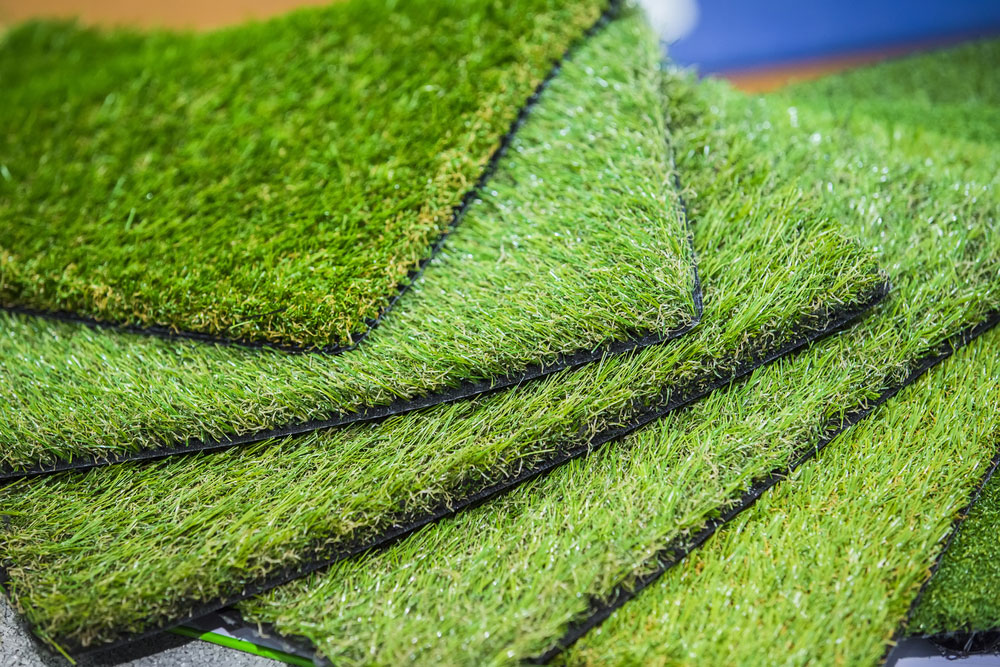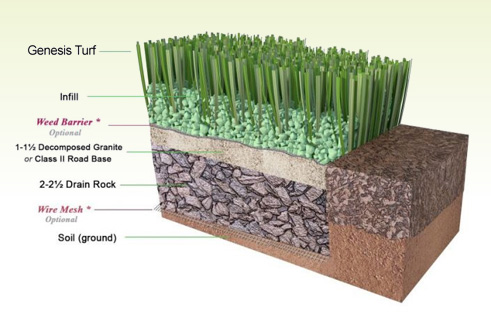Discover Trusted Artificial Turf Companies Phoenix for Your Landscaping Needs
Discover Trusted Artificial Turf Companies Phoenix for Your Landscaping Needs
Blog Article
Look Into the Environmental Benefits of Opting for Synthetic Grass Solutions
The adoption of man-made turf solutions provides an engaging opportunity to resolve pushing environmental obstacles. By dramatically reducing water usage and lessening the application of unsafe chemicals, these options not just promote lasting landscape design but also protect neighborhood ecosystems. Moreover, the reduced carbon impact connected with decreased maintenance activities adds to a much more lasting technique to land administration. The effects of these benefits expand past plain preservation efforts, increasing concerns regarding their lasting influence on environment preservation and general environmental balance. Discovering these measurements reveals a complex interaction worth thinking about.
Water Preservation Conveniences
Among the most considerable advantages of synthetic grass is its capability to save water. Standard yard lawns need substantial irrigation, especially in areas vulnerable to dry spell or water constraints. In contrast, fabricated grass does not require watering, dramatically lowering the overall demand for water resources. This function is specifically beneficial in dry areas where water scarcity is a pressing concern.
By removing the need for routine watering, fabricated grass adds to lasting landscape techniques and aids reduce the ecological effect of excessive water consumption. The conservation of water extends to the decrease of runoff, which can lead to soil disintegration and waterway air pollution.
Additionally, the setup of synthetic turf allows house owners and towns to designate water resources much more efficiently, concentrating on necessary usages such as drinking water and farming. The change in the direction of synthetic grass not only promotes liable water use yet also aligns with more comprehensive environmental objectives targeted at protecting natural resources.
As neighborhoods increasingly focus on sustainability, the water preservation benefits of synthetic grass provide a compelling instance for its fostering in industrial and household landscape design jobs.
Reduced Chemical Use
The transition to synthetic lawn considerably lowers the dependence on chemical treatments generally utilized in natural yard upkeep. Traditional lawn administration commonly involves the application of fertilizers, chemicals, and herbicides to advertise growth and control parasites. These chemicals can posture risks to human health, regional wildlife, and the environment, adding to soil and water contamination.
On the other hand, fabricated turf eliminates the requirement for these hazardous compounds. As soon as mounted, it calls for minimal upkeep, mostly containing routine cleaning and occasional infill replenishment. This decrease in chemical usage not just profits the prompt atmosphere but likewise adds to broader environmental stability. By lessening the release of synthetic compounds into the ecological community, fabricated lawn promotes much healthier soil and water supply.
Moreover, the lack of chemical drainage linked with synthetic grass installations aids secure regional waterways from pollution, supporting water life and maintaining biodiversity. Phoenix turf companies. As communities significantly focus on sustainable methods, choosing synthetic grass presents a practical remedy that straightens with ecological preservation goals. Through this shift, residential property proprietors can take pleasure in rich eco-friendly spaces without jeopardizing eco-friendly health, paving the way for an extra sustainable future
Reduced Carbon Impact

Additionally, the installation of synthetic grass can cause significant water preservation. Natural yards need significant quantities of water for irrigation, which not just includes in More Info the carbon impact connected with water removal and therapy but likewise pressures local water resources. On the other hand, synthetic lawn needs very little maintenance, calling for no watering, thus dramatically reducing water usage and its connected power prices.
In addition, the longevity of synthetic grass contributes to its decreased carbon influence. With a lifespan of approximately 15 years or more, the requirement for frequent replacements is decreased, leading to less waste and reduced energy consumption in manufacturing and throwing away typical grass alternatives. Overall, synthetic grass provides a sustainable choice for ecologically mindful landscape design.
Habitat Conservation
Habitat conservation is an essential factor to consider in the debate over landscaping selections, especially when comparing fabricated grass to all-natural yard. All-natural grass lawns often require extensive maintenance, including using herbicides, pesticides, and plant foods, which can detrimentally affect local ecological communities. These chemicals can seep into the dirt and rivers, harming indigenous plants and animals and interfering with local habitats.
On the other hand, man-made turf provides a chance to lower the ecological impact of landscape design. By choosing artificial turf, property owners can minimize the disturbance of natural environments associated with typical yard care methods. Man-made grass removes the requirement for dangerous chemicals, thus safeguarding nearby wild animals and preserving the integrity of bordering environments. Furthermore, the installation of synthetic grass can cause the conversion of previous grass areas into even more biodiverse landscapes, such as pollinator gardens or native plant locations, which can sustain regional wild animals.
Eventually, the change to synthetic grass not only conserves water and decreases maintenance efforts yet also fosters a more harmonious connection between human activities and the natural surroundings, advertising habitat preservation at the same time.
Long-Term Sustainability
Long-lasting sustainability is an important consider evaluating the advantages of synthetic grass over traditional yard lawns. One of one of the most substantial advantages of synthetic grass is its resilience; it can last up to 15-20 years with marginal maintenance, whereas all-natural lawn needs regular reseeding and replacement. This durability minimizes the demand for continuous resources, such as water, plant foods, and pesticides, which are essential for keeping a healthy and balanced turf yard.
Furthermore, synthetic turf contributes to a decrease in carbon emissions connected with lawn care tools. Standard lawns frequently call for gas-powered mowers, leaners, and blowers, all of which add to air pollution. Phoenix turf companies. her explanation In comparison, synthetic grass gets rid of the demand for such tools, advertising a cleaner atmosphere
Furthermore, the production of synthetic grass significantly makes use of recycled materials, improving its sustainability profile. As manufacturers embrace green techniques, the environmental impact of synthetic grass continues to reduce.

Final Thought
The fostering of synthetic grass options offers significant environmental advantages, consisting of significant water conservation, minimized dependence on unsafe chemicals, and a reduced carbon impact. Furthermore, synthetic grass help in protecting natural habitats by reducing land disruption and promoting lasting sustainability through making use of long lasting materials. Jointly, these factors emphasize the potential of synthetic grass to contribute favorably to environmental health and supply a feasible choice to standard landscape design practices in a progressively resource-conscious world.
In comparison, fabricated grass does not need watering, considerably reducing the total demand for water resources. By decreasing the release of artificial substances into the ecosystem, man-made turf advertises healthier dirt and water systems.
Moreover, the installation of view website artificial grass can result in considerable water conservation. In contrast, synthetic lawn needs minimal maintenance, calling for no watering, consequently considerably lowering water usage and its linked energy expenses.

Report this page